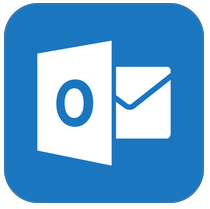While there was much anticipation over the recent Windows and SAMBA vulnerability dubbed the “Badlock Bug“, the criticality level dropped to “high” with a Common Vulnerability Score of 7.1. So, was the bug as big of an issue as had previously been indicated? Probably not, but not addressed could lead to security issues such as Man-in-the-Middle (MitM) or Denial of Service (DoS) attacks, which can be mitigated using the following best practices:
- Patch as you get to it, but no reason to rush this one
- Do not use SMB over networks you don’t trust
- Firewall SMB inbound and outbound
- If you need to connect to remote file shares, do so over a VPN.
 e UIS community not install or configure Microsoft’s latest mobile app “Outlook for iOS and Android” to be used for connecting to the university’s Exchange services. For those users who have already done so, we recommend that the app be uninstalled and your university
e UIS community not install or configure Microsoft’s latest mobile app “Outlook for iOS and Android” to be used for connecting to the university’s Exchange services. For those users who have already done so, we recommend that the app be uninstalled and your university 